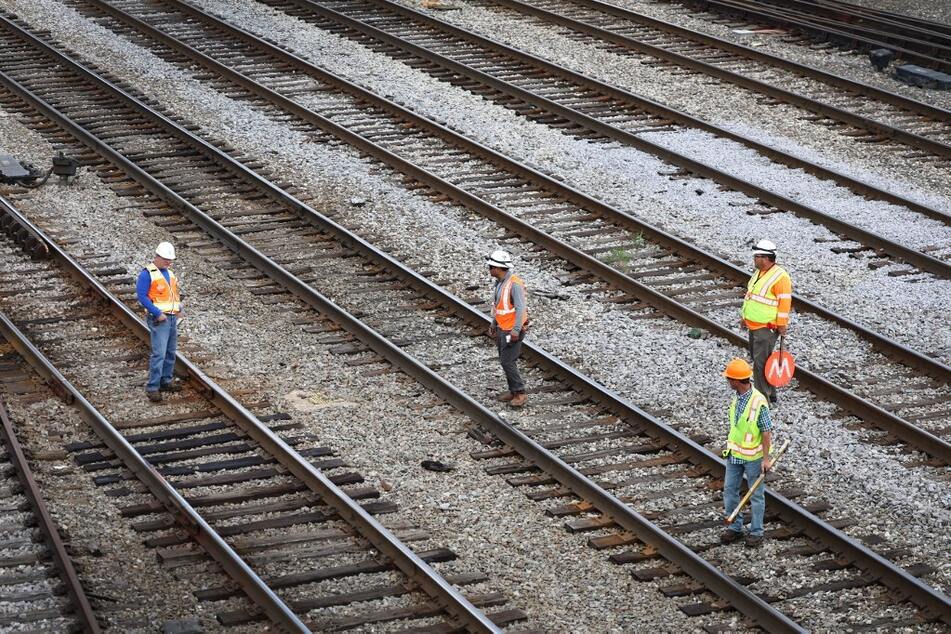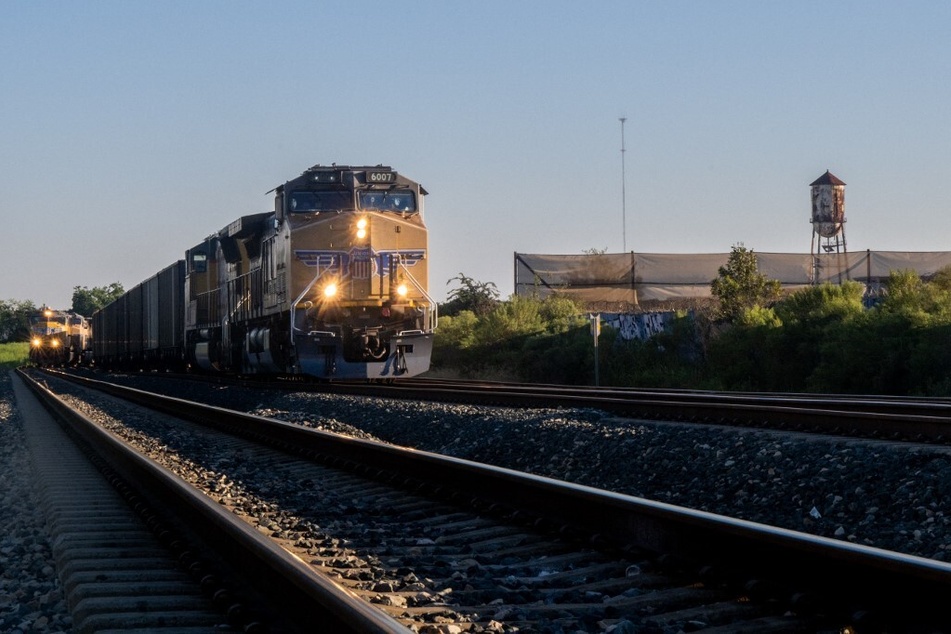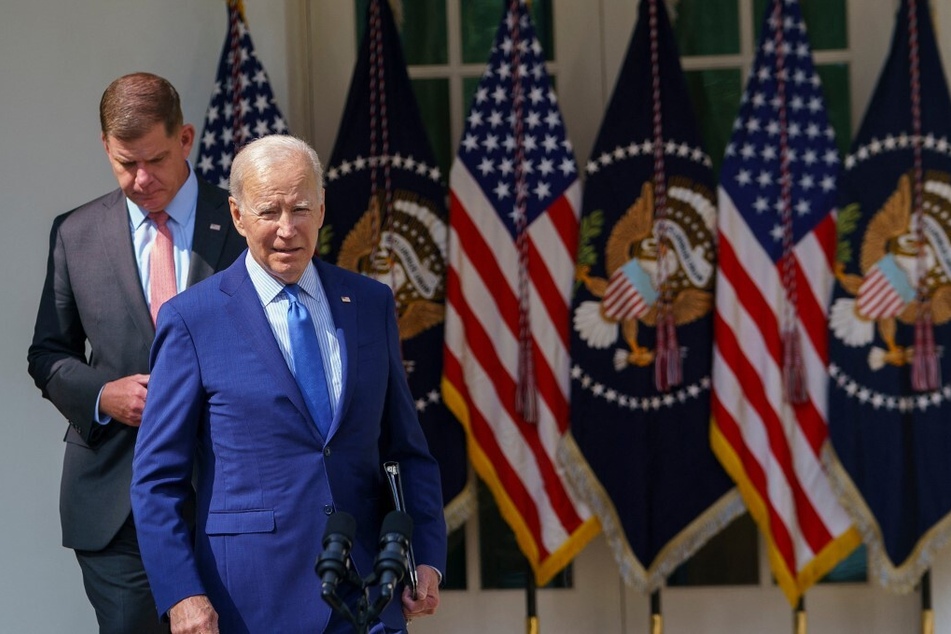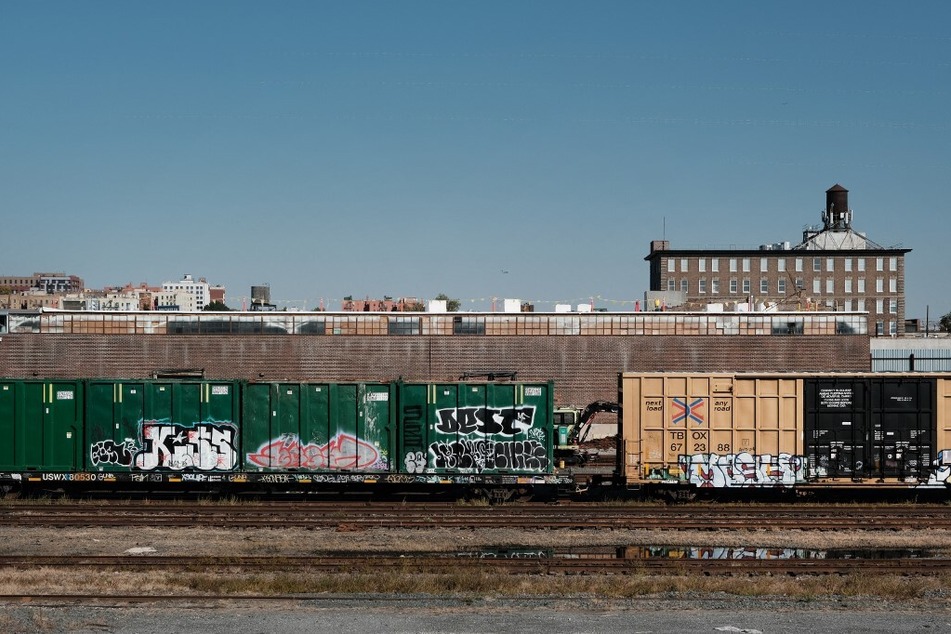Railroad Workers United calls for solidarity in "last stand" against rail companies
Finding themselves at a breaking point, US railroad workers are poised to launch a massive strike later this month, which could have wide-ranging impacts on the US supply chain and economy.

As freight rail companies rake in huge annual profits, workers, who have been without a new contract for three years, have threatened to withhold their labor while demands for fair pay and working conditions go unanswered.
Talk of a national rail shutdown was stirring earlier this fall, but a tentative agreement reached among unions, freight companies, and the Biden administration on September 15 temporarily put off the possibility of a strike.
Six of the 12 craft unions present during bargaining have already voted to ratify the agreement, but they only account for around 20% of rail labor. Three other unions, representing around 30% of rail labor, have voted against ratification.
Railroad Workers United (RWU), a cross-union democratic organization composed of rank-and-file railroad employees, has started a Vote No campaign to urge more workers to reject the agreement.
RWU leaders came together on Tuesday to explain what conditions are like on the rails and why the current deal doesn't go far enough to address their concerns.
What are working conditions like on the railroads?

In recent years, US rail companies have slashed their workforces to cut costs. Meanwhile, those same companies have reaped massive profits, which have been used to funnel billions in stock buybacks and dividends to investors.
Expected to pick up the slack, rail employees are strained to their limits, with zero days of paid sick leave per year. Many are on call 24 hours a day, seven days a week, with sometimes just 90 minutes notice before they are expected to show up for work.
"You have fewer workers doing more work faster," said Ross Grooters, an RWU co-chair and locomotive engineer based out of Des Moines, Iowa, who was speaking during Tuesday's RWU solidarity meeting, facilitated by The Real News Network's Maximillian Alvarez.
"It is unsustainable, and it is not the kind of conditions we can continue to work under and guarantee a functioning, safe supply chain," Grooters insisted.
"We used to have the ability to take care of our families, take care of ourselves," added Gabe Christenson, a Union Pacific freight conductor, assistant state legislative director for SMART-TD, and RWU co-chair based in Sparks, Nevada. "We can't do this. The quality of life is not there."
Why do workers say the tentative agreement is not enough?

The tentative agreement reached in September was supposed to find common ground between rail companies and unions, but many workers say it does not go far enough to meet their needs.
The deal includes 24% salary increases over five years and $5,000 in bonuses. Though workers have called for higher wages, they noted that the proposed raises will barely keep up with inflation, as well as rising costs of living and health care. Workers have not received any raises over the last three years.
Another downside is the notable lack of protections around scheduling and paid time off.
The proposal "didn't even touch the quality-of-life issues that we have out here," Christenson said. "There's no sick days that were involved in that. We got one extra paid day of vacation, but they won't let us take vacation."
"It's not making anything better. It's actually going to make it quite a bit worse from what we have now. We didn't think they could do that, but they did."
What happens if rail workers decide to go on strike?

If enough rail workers reject the tentative contract agreement, the US could see its first rail strike in three decades.
"Even if one of the smaller unions were to call a strike and put up picket lines, all of us are under obligation by the brotherhood and the sisterhood, the concepts of trade unionism, and basic solidarity that we will not cross the picket line. Therefore, if any of the unions were to go on strike in the coming weeks and months, we will all honor those picket lines, and it will result in a national rail shutdown," explained Ron Kaminkow, an RWU organizer and Amtrak locomotive engineer in Reno, Nevada.
Such a shutdown could have massive impacts on the US economy, affecting not just freight transport but also passenger travel. This powerful show of force has the potential to bring rail companies to their knees and help workers win a better deal for themselves and their families.
But even if workers do choose to go on strike, there is a chance Congress could issue a back-to-work order and force a contract on the rail unions, in accordance with the Railway Labor Act.
"I have yet to see how union-friendly our politicians are right now. We've heard very little noise except that we would be put back to work if we did go on strike," Christenson said.
That's why Tuesday's panelists highlighted the importance of public support for their cause, calling on everyday people to donate to the RWU, purchase merchandise from the RWU online shop, and reach out to elected officials to demand they stand with railroad workers in the fight for a fair contract. They also encouraged people to look up their nearest railroad yard and start painting signs so they are ready to show out if a strike does occur.
"This is our last stand. Railroaders are so united right now, more than I've seen in my almost 20 years of working out here," Christenson said. "The hopes are that if we push it and keep fighting, we will get what we deserve."
Cover photo: SCOTT OLSON / GETTY IMAGES NORTH AMERICA / GETTY IMAGES VIA AFP

